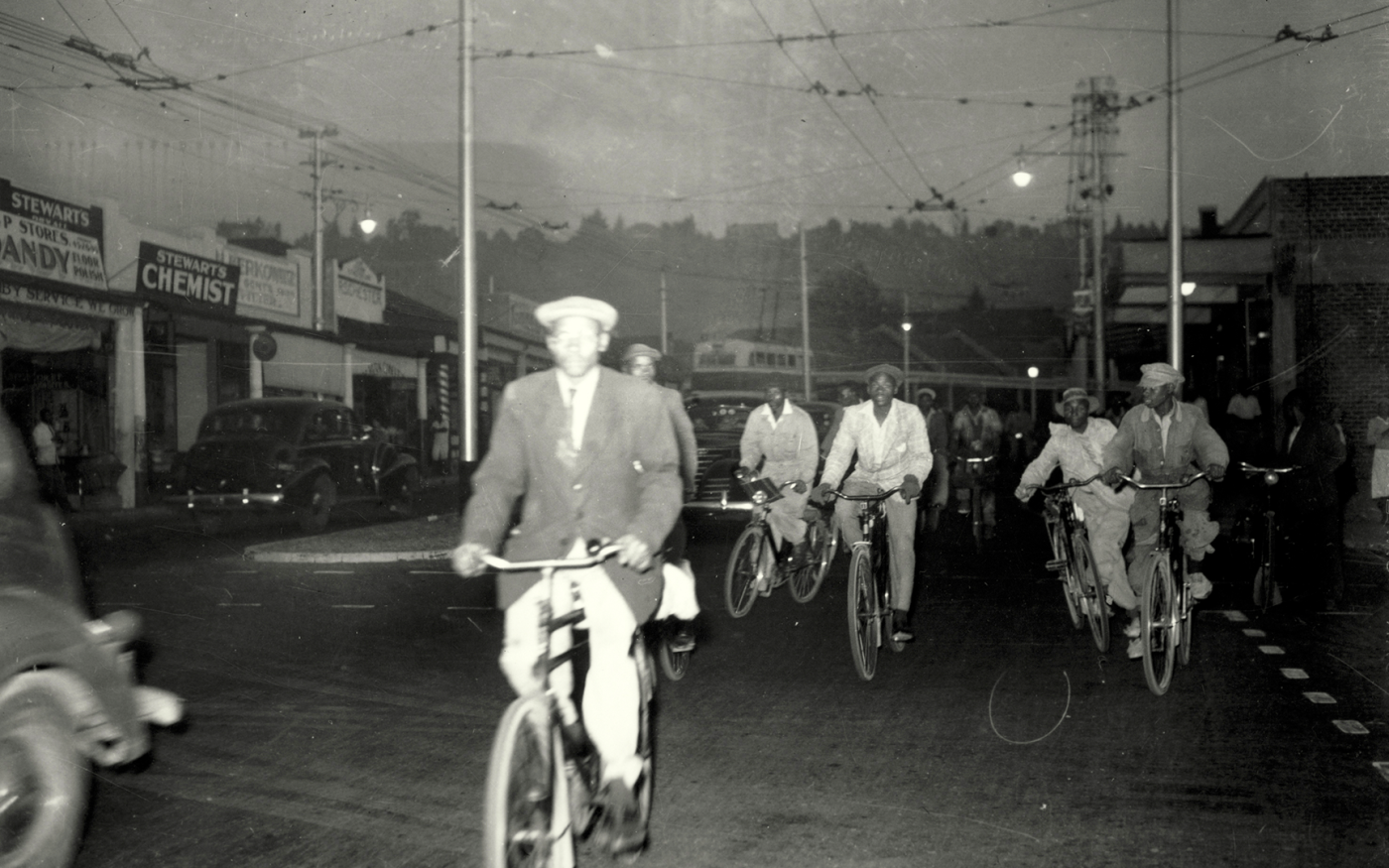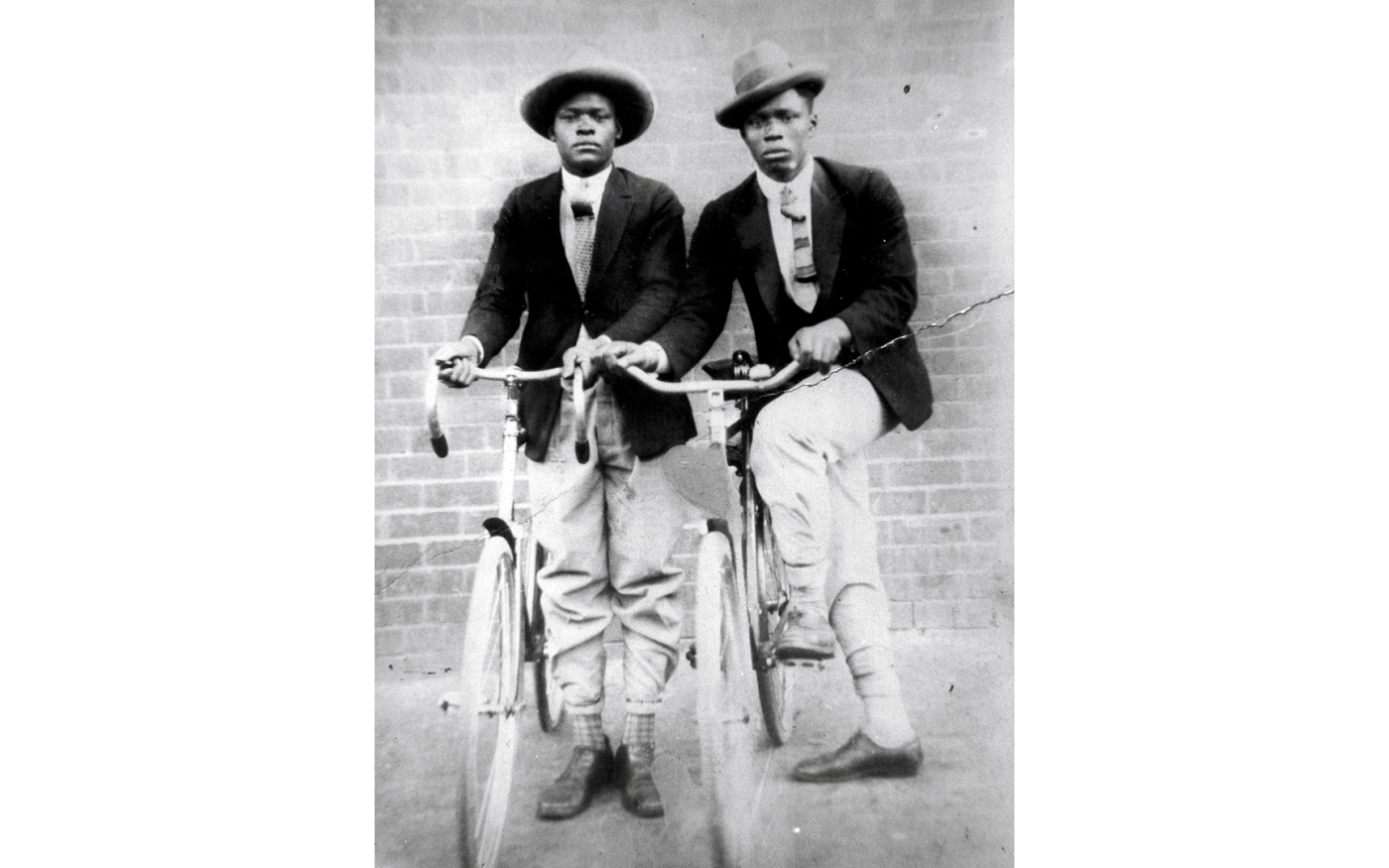Urban Lab Researcher Explores Mobility and Cycling History in African Cities
20 March 2024
The project received funding of £10,000 from the UCL-Wits University Strategic Partner Funds for research workshops on cycling history in Africa.

Dr Njogu Morgan, Lecturer in Global Urbanism, is coordinating a research group meeting in Ghana for the Cycling Cities: The African Experience publication. The project is part of the Cycling Cities publication series which covers 100 years of cycling policy and practice around the world in 50 cities in 25 countries. It traces the impact of policymakers, engineers, cyclists and community groups since the early 20th century.
Cycling Cities: The African Experience is led by Njogu and will be published in May 2025. The publication will contain case studies of 16 urban cities across Africa, providing a modern history of the featured regions. Readers will be introduced to the changing spatial form, socio-cultural norms, governance arrangements and mobility alternatives that have shaped cycling in Africa over the past 100 years.
The funded research meeting will take place from 4–8 June 2024.
Commenting on the funding, Njogu said,
“This funding fills a critical gap, [without which] it would have been impossible to convene a workshop where final versions of the book chapters will be presented for critical review. Crucially, the workshop enables a comparative discussion to happen drawing out common patterns and differences across the diverse continent that is Africa.
In 2019, Njogu published Cycling Cities: The Johannesburg Experience.
Cycling history in Africa


Bicycles started appearing in African urban contexts in the late 19th century as they were brought to the continent during colonialism by European missionaries, military officials and civil servants. Compared to other mobility technologies such as trams and rickshaws, bicycles have stood the test of time and remain present in current African urban settings. However, there is limited research exploring cycling as a mode of commuting on the continent through social, political and spatial lenses.
For European colonial agents, bicycles were not only seen as practical mobility tools, but also symbols of industrialisation and power over the colonised people. As black Africans began to ride bicycles at the turn of the 20th century in Nairobi, Kenya and Johannesburg, South Africa, colonialists disapproved and, in some cases, attempted to limit Africans’ access to bicycles.
In the African social context, cycling is an affordable means of mobility that also addresses current urban challenges such as climate breakdown and congestion. Yet, its benefits are often ignored by policymakers. Njogu’s collaborative project explores the place-specific conditions that allow bicycle cultures to develop and aims to inform policies promoting urban cycling in Africa.
The research uses comparative analysis to understand how Africa’s structural and regional diversity has shaped the history of bicycle mobility. Emerging insights suggest that the politics of the Cold War shaped the ubiquity of bicycles as countries allied to former socialist countries were more likely to experience higher levels of commuter cycling. Njogu’s research group meetings will further explore some of the emerging insights to understand the reasons for how cycling mobility has developed across Africa, including how the end of the Cold War and the adoption of neoliberal capitalist political-economy frameworks led to a severe decline in state-supported public transport systems.
More information
- View Dr Njogu Morgan's profile
- Find out more about Cycling Cities: The African Experience
- Learn more about Cycling Cities: The Johannesburg Experience
- View the map of cities involved in the project
- Find out more about the Global Urbanism MASc
Images: Historical and recent photos of cyclists in Johannesburg, curated by Njogu Morgan
 Close
Close

